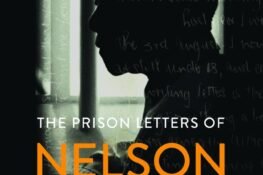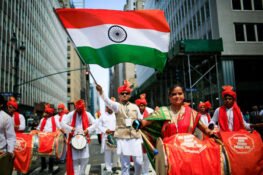To celebrate International Women’s Day and Women’s History Month this March, we bring you 12 great reads as recommended by 12 female authors.
These women share the books that inspire them, the novels that never leave their bedside tables, and those they think speak most profoundly about the issues facing women.
Enjoy…

The Group
By Mary McCarthy
“The Group” is a sprawling chronicle of a group of 1933 Vassar graduates, by Mary McCarthy, an acclaimed 20th century novelist, critic, public intellectual and doyenne.
One of the novel’s many claims to fame — besides staying on the best-seller list for two years after its 1963 publication — is that Candace Bushnell considered “Sex and the City” its contemporary follow-up. Those familiar with the latter book and series will recognize familiar themes in “The Group” — sex and sexuality, marriage, adultery, work, child-rearing, and the complicated bonds of female friendship.

Marriage Of A Thousand Lies
By SJ Sindu
Lucky and her husband, Krishna, have an arranged marriage: They’re together so that she can pursue women and he can pursue men. She wants to present her Sri Lankan Tamil American family with a facade of conventional straightness.
Her carefully constructed life goes off the rails, though, when she reconnects with a childhood friend and love on the verge of her own arranged marriage. Sindu handles the complexities of identity beautifully.

Original Local: Indigenous Foods, Stories, and Recipes from the Upper Midwest
By Heid E. Erdrich
The book is indigenous feminism at its finest: Native womanhood, in all its power and mystery, is at the heart of sustenance and nurturing through the stories and preparation of foods.
Erdrich’s poetic cookbook is an enjoyable read for kitchen and bedside: the story recipes are inclusive, insightful and grounded in the history and worldview of Native people.

No Time to Spare
By Ursula K. Le Guin
In “No Time to Spare: Thinking About What Matters,” the fantasy and science fiction writer, Ursula K. Le Guin, has written a series of brilliant and beautiful essays, which began as blogs.
Writing about what matters to her now and about her concerns for this world, she is at once a witty social critic and a profound storyteller. Whether she writes about living past 80, the Lit Biz, the natural world, science, religion, her cat, or eating a soft-boiled egg, she’s always lively and never boring. Le Guin died in January in Portland, Ore.

A Tree Grows in Brooklyn
By Betty Smith
A Tree Grows in Brooklyn is a memoir-novel by Betty Smith about a young girl growing up on the mean streets of Depression-era Brooklyn, published in 1943.
Francie Nolan was a lonely girl, even though she was loved. She was unable not to feel the sadness of those around you. Her love for the world and being alive in it was wild and intense.The novel shows, in a particular but universal way, how life was (and is) different if you’re born female. The cards were stacked against Francie from birth in specific ways: education, jobs, sexual and emotional and religious abuse. At the same time, the novel also shows, without sentiment, how the fierce resilience of a girl determined to make her way out of the conditions she was born into results in powerful change.
Francie’s favorite teacher told her that in life, she should tell the truth of the way things happened, but that in the stories she wrote, she could make up her own endings. She could write life the way it should be. Francie took that advice to heart. “A Tree Grows in Brooklyn” showed that writing was a way to translate and transcend the wrenching experience of living, especially as a female, and I needed that. We all do.

The Double Life of Alice B. Sheldon
By Julie Phillips
This is a work of nonfiction by Julie Phillips, who spent 10 years researching the life and work (mostly science fiction writing) of James Tiptree Jr., who did not exist. Tiptree was an alias, a second self created by Alice B. Sheldon, who broke into the relatively closed ranks of science fiction writers by claiming to be a man. Sheldon was a debutante, an explorer, a CIA agent, a research scientist — and a lesbian ill at ease in both her female identity and her physical body.
This is a beautiful, sad, surprising and insightful book.

Yellow Future: Oriental Style in Hollywood Cinema
By Jan Chi Hyun Park
Yellow Future: Oriental Style in Hollywood Cinema, will help anyone who is interested in movies understand the racist whitewashing of Asian characters and the Orientalist cultural appropriation rampant in Hollywood yesterday and today.

The Cazalet Chronicles series
By Elizabeth Jane Howard
The Cazalet Chronicles — “The Light Years”; “Marking Time”; “Confusion”; “Casting Off” and “All Change” — weaves the lives of a British middle class family together and apart before, during and after World War II. The novels are historic accounts by a woman who lived that history of war, love, motherhood, rebellion — a chronicle of a life’s experience.
Howard was a writer of great skill in her portrayals, reminding us why women novelists are so great — characters drive their stories forward, whereas male writers tend to put story first, characters secondary.
During the period Howard was married to her third husband Kingsley Amis, her career took a back seat, despite her being the more gifted writer. She kept house, entertained, was a caring, involved stepmother to Amis’ children, and tended a parade of his long-staying guests. Her writing was wedged around and between the domestic obligations of a woman of the times. Many imagine she would have been more prolific, given the same support and credence as a male counterpart.

But You’re Wearing a Shirt the Color of the Sky
By Lucille Broderson
There’s a veil drawn over the strange landscape of aging which renders its female inhabitants, in particular, nearly invisible. Similarly, the publishing world tends to ignore the voices of aging women writers, particularly if they picked up the habit late in life.
Broderson, who died in 2015 “of complications of being 98,” published this collection of poems at age 94, though she’d been writing for three decades by then, having started writing in earnest in her 60s.
Her coruscating dispatches from the mysterious ecosystem of loss, endurance, memory and love crackle with wit and devastate one with their beauty. Broderson wrote of hospital rooms and graveyards, of beloved dogs disappearing beneath the hen house to die. But she also wrote of late afternoons on Lake Superior, of robins nibbling dandelions, and the sound of her grandchildren tiptoeing past her bedroom.
In a world where aging women — most particularly the elderly woman — has been silenced, Lucille Broderson shatters the air with her voice.

The Discovery of Jeanne Baret
By Glynis Ridley
In 1766, 26-year-old Jeanne Baret disguised herself as a man and boarded the Etoile, headed around the world. As assistant (and lover) to the ship’s naturalist Philibert Commerson, she used skills developed as an herb woman in France to collect and record plants from across the globe, some new to Western science.
Prompted by an intrepid spirit, she visited countries few Europeans ever had; as she told the captain, when her disguise was revealed, “such a voyage had raised her curiosity.”
It’s rare to have documentation of an exceptional woman who wasn’t educated or wealthy, but Ridley unearths Baret’s fascinating narrative in a book that’s half-sea adventure, half-literary detective story, literally reading between the lines of archival sources where officials tried to obscure the truth.

Afterland
By Mai Der Vang
This is an astounding first collection of poetry by a Hmong-American woman. As another Hmong-American woman writer, it is exciting to see the experience we share translated into the color, the texture, the fabric of poetry.
Like “ib daim paj ntaub,” a storycloth, Vang’s work reveals new elements of story in each reading, thus they grow along with their reader in strength and clarity, humility and purpose; her poems are heartbreaking and heart-making at once.
Every reader will benefit from the richness of Vang’s exquisite language and construction of poetic landscape.”

The Song Poet
By Kao Kalia Yang
Award-winning author Kao Kalia Yang speaks about her books and the Hmong experience in Minnesota. Her book, “The Song Poet: A Memoir of My Father” won a 2017 Minnesota Book Award and was a 2017 National Book Award finalist. “The Latehomecomer” was a Minnesota Book Award winner in 2009.
Adapted from https://www.mprnews








